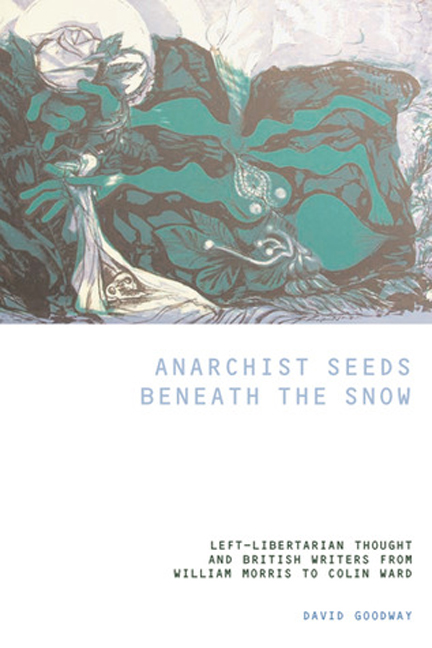 Anarchist Seeds Beneath the Snow
Anarchist Seeds Beneath the Snow Book contents
- Frontmatter
- Contents
- Dedication
- Acknowledgements
- Abbreviations
- 1 Introduction
- 2 Anarchism and libertarian socialism in Britain: William Morris and the background, 1880–1920
- 3 Edward Carpenter
- 4 Oscar Wilde
- 5 John Cowper Powys I: His life-philosophy and individualist anarchism
- 6 The Spanish Revolution and Civil War – and the case of George Orwell
- 7 John Cowper Powys II: The impact of Emma Goldman and Spain
- 8 Herbert Read
- 9 War and pacifism
- 10 Aldous Huxley
- 11 Alex Comfort
- 12 Nuclear disarmament, the New Left – and the case of E.P. Thompson
- 13 Christopher Pallis
- 14 Colin Ward
- 15 Conclusion
- Bibliography
- Index
1 - Introduction
- Frontmatter
- Contents
- Dedication
- Acknowledgements
- Abbreviations
- 1 Introduction
- 2 Anarchism and libertarian socialism in Britain: William Morris and the background, 1880–1920
- 3 Edward Carpenter
- 4 Oscar Wilde
- 5 John Cowper Powys I: His life-philosophy and individualist anarchism
- 6 The Spanish Revolution and Civil War – and the case of George Orwell
- 7 John Cowper Powys II: The impact of Emma Goldman and Spain
- 8 Herbert Read
- 9 War and pacifism
- 10 Aldous Huxley
- 11 Alex Comfort
- 12 Nuclear disarmament, the New Left – and the case of E.P. Thompson
- 13 Christopher Pallis
- 14 Colin Ward
- 15 Conclusion
- Bibliography
- Index
Summary
This book was strongly recommended to the commissioning editor of one of Britain's best-known firms by a reputable historian whose latest work he was publishing. The editor replied that personally he would be extremely interested but he would never dare to take it to his editorial board. The problem presumably lay in my subject, for anarchism continues to engender at the beginning of the twenty-first century the passionate opposition it aroused at the end of the nineteenth and early-twentieth centuries when it became irretrievably associated with bomb-throwing and violence, a violence that has re-erupted in recent years with the widely publicized activities of self-professed anarchists in the anti-globalization and similar movements.
Yet anarchism – or left libertarianism, if one requires a less emotive term – is a long-established political position and ideology, associated with a substantial body of necessary, radical thought. In other countries this is taken for granted and intellectual respect is paid to anarchism, even if very much a minority tradition, but it has never been in Britain and the other Anglo-Saxon nations. Here anarchism continues to be shunned in polite circles, whether social or academic. Herbert Read tells of finding himself at a dinner sitting next to ‘a lady well known in the political world, a member of the Conservative party’, who ‘at once asked me what my politics were, and on my replying “I am an anarchist”… cried, “How absurd!”, and did not address another word to me during the whole meal’. Similarly a close friend has delighted for many years in introducing me as ‘an anarchist historian’, a description unfailingly met with at best bemusement, and otherwise appalled silence. Things have been no better on the left and in the working-class movement, for, as Read explained elsewhere: ‘In calling [my] principles Anarchism I have forfeited any claim to be taken seriously as a politician, and have cut myself off from the main current of socialist activity in England.’ And whereas the manifestations, especially British but also inter nationally, of Marxism, Communism, democratic socialism, liberalism, conservatism, nationalism and even fascism, in terms of movements as well as theory, have been relentlessly discussed, analyzed and researched, left libertarianism is almost entirely neglected in this country.
- Type
- Chapter
- Information
- Anarchist Seeds Beneath the SnowLeft-Libertarian Thought and British Writers from William Morris to Colin Ward, pp. 1 - 14Publisher: Liverpool University PressPrint publication year: 2006
